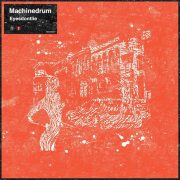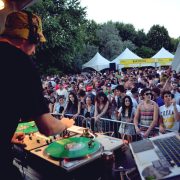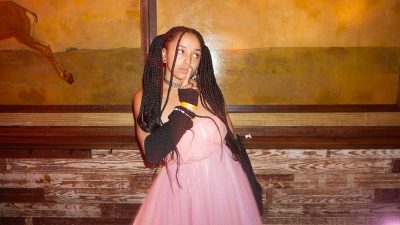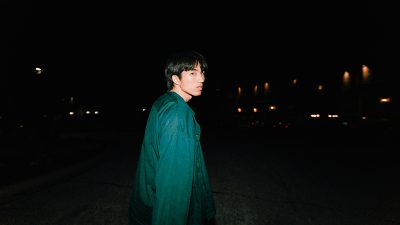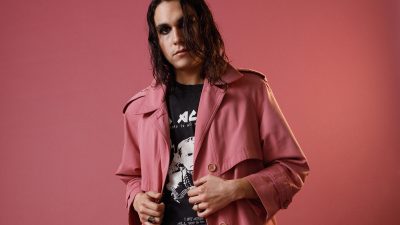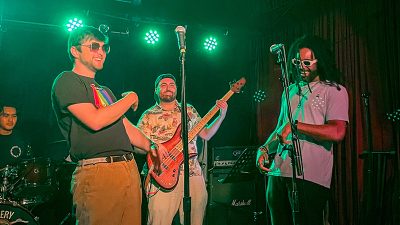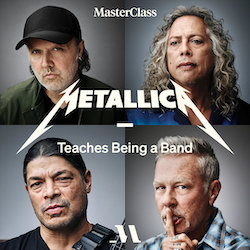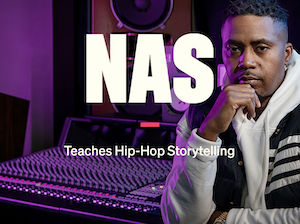Moving forward with The Darcys, interview

photos by Mike Ford
Following an unconventional interpretation of Steely Dan’s AJA the four boys of The Darcys: Jason Couse, Wes Marskell, David Hurlow, and Michael le Riche, are set to release their brand new album, Warring, on September 17 through Arts & Crafts. Enveloped in a whack of black-and-white visuals, they seem to not only have a better understanding of themselves but where they are headed.
We sat down with two halves of the group, Marskell and Couse, during one of Toronto’s worst summer storms. Despite the torrential downpour, we managed to soak in what the band has been up to and how they’re bringing lessons of the past into the future.
Laura Eley: You’ve been recording at a farmhouse. How’s that going?
Wes Marskell: We’re back from the farm now. We were recording a companion piece to the record, a different project. When we made our first record we moved to Montreal to try and get a little bit of distance from people we knew, but when you’re on a farm you don’t have any Internet, you don’t have phone service, you’re just isolated. And we were trying to make something and sort of channel that distance from everyone. So it was interesting, rewarding, challenging.
Jason Couse: We definitely made the most of it. We ended up staying up until four, five in the morning every night and getting up at ten – really maximizing the opportunity there. But it was fun, just all the work that we did was turning out really well.
LE: How is creating your own album different from interpreting an album like AJA?
JC: We spent a lot of time learning how to play the songs, learning our way through the chord progressions, which with Steely Dan is particularly complex. But then once we had an idea for each song and aesthetic, and the direction we wanted to go, we would cut ourselves off from where it came from, and then treat it as if we’re something of our own in a way, which was fun, but also challenging musically. Most people play the things they’re comfortable with and sing the way they’re comfortable singing, but we were all forced far outside of what we’re used to doing.

LE: You chose to release your last album online for free and sell vinyl copies. Is that something we can expect with this next album?
WM: We’re looking at different options. I do think we spent a lot of money on making this new record, and there’s a reality in that. But we still don’t want to just put out a record and wash our hands and be done with it. We understand that we’ve gained a lot fans by putting things out for free, so we’re looking at other ways to capitalize and put music out for free in smaller doses.
LE: You’re signed to Arts & Crafts, which seems like a pretty open minded label. Is it difficult for artists to find labels that see eye-to-eye with them?
WM: Yes. I think Arts & Crafts is very generous and supportive and they back us fully. They also have the mentality of ‘if you have a great idea, we’re going to let you do that.’
LE: Speaking of other art forms – photography, literature, etc. – how important are they to your music?
WM: Massively. Jason and I both read a lot of Cormac McCarthy while making the new record and sort of thematically, sonically, lyrically that crops up. I’ve been coming around to the idea that really good things aren’t necessarily things you enjoy, but allow you to reflect on your own art form. I went to see a band the other day and it was like ‘I want to go home with this idea and I want to work on that’. That to me is what made their show great, it allows you to internalize through your own stuff.
LE: Since releasing your first record in 2007, you have been through a lot as a band. What’s the most important thing you’ve learned between then and now?
WM: I think we learned in the last few years that this is a project that had to move forward. If it all fell apart we would still be here in some capacity doing this, and it wasn’t about getting a record label or playing stadiums.
JC: I think that at a certain point you don’t know exactly what you want to get out of something, but you know that want to live through the process of trying to figure that out. And, I think that’s something for us, just by a number of things that happened to the band and the way it’s changed and our ideas and aesthetics and goals have changed, it’s always been a project of discovery just trying to figure out what it is we’re really after and the best way to get there is. That process alone is where a lot of growth comes from artistically and personally.


